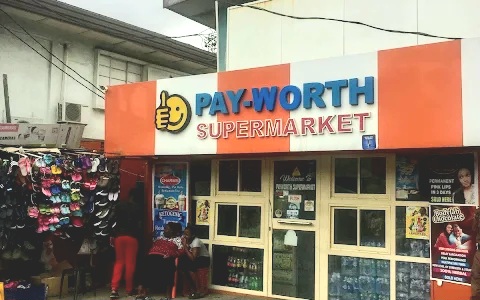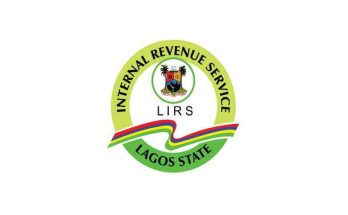By Ejiofor Toochi
“A superstore, not a supermarket.” This is how Okonkwo Cletus, the owner of Payworth describes his establishment.
For over 25 years, Payworth supermarket has served the residents of Kodesoh street, Ikeja by remaining one of the oldest go-to destinations for toiletries, groceries, cosmetics, and other household items.
What started off as a small shop has grown to be one of the most popular supermarkets in Ikeja, under bridge. Okonkwo however didn’t stop at one outlet. He ensured the expansion of his supermarket by adding two smaller outlets positioned within Ikeja– the capital city of Lagos.
READ ALSO: Radisson Blu, Ikeja is changing the face of hospitality business
Ikeja, which primarily used to be a residential area, has over the years expanded into a commercial area, accommodating businesses of different caliber– even the popular computer village. Okonkwo Cletus considers the presence of computer village as a plus, noting that it attracts more customers. “The presence of computer village helps to boost our business, because a lot of people come there from different parts of the country,” he stated.
Like every other business in Nigeria, Payworth has had its fair share of challenges since the removal of fuel subsidy. Increased supplier prices and higher energy costs have impacted the business. Okonkwo understands that the economy has also affected his potential customers. So in order to keep the business running in spite of these constraints, he ensures that he retains his customers by providing what they need accompanied with competitive prices.
He explained, “Every business man has his own way. It’s a competitive environment and ours– our competitors are the people who don’t run the cost we run.
Adapting to digital technology
Okonkwo noted, “Supermarket, like in any other country is growing. The system has changed, the method has changed.”
With the rise of digital technology, many small businesses in Nigeria are leveraging online platforms and mobile apps to reach customers. Although their main focus is to remain afloat during this economic crisis, Payworth supermarket plans to expand into the digital space to adapt to the demands of the modern era. Obinna, the manager, shared, “We already have a website in the works, and are working with companies like Chowdeck and Flexdeals to see how we can expand our reach.”
Corporate citizenship
Small businesses in Nigeria don’t only play a crucial role in the country’s economy, they also contribute in building their host communities. In the same way, Payworth not only contributes their quota to the retail chain in the country, they give back to their community through regular contributions to carnivals hosted by indigenes, and supporting vigilante groups to enhance community security.
Passing on the legacy…
It’s a strong tradition amongst the Igbos to pass on knowledge to their sons for the continuity and success of their business. This culturally significant practice is evident in Okonkwo’s son, Obinna, the current manager, who from a young age, learnt the ropes of the business.
He pursued studies in economics and business management, which he now applies to the daily operations of his father’s supermarket, with the understanding that he will one day take on the role of CEO. He shared, “I came by the store to help out back in the day, but didn’t start full time until 3 years ago. I believe I’m already running the place, at least 70% of the day to day activity.”
Through decades of challenges and changes, Payworth has not only survived but thrived. The vision for the future is clear: to evolve from a supermarket into a superstore– which combines elements of a supermarket and a department store, providing customers with access to groceries, household items, electronics, clothing, and more.








